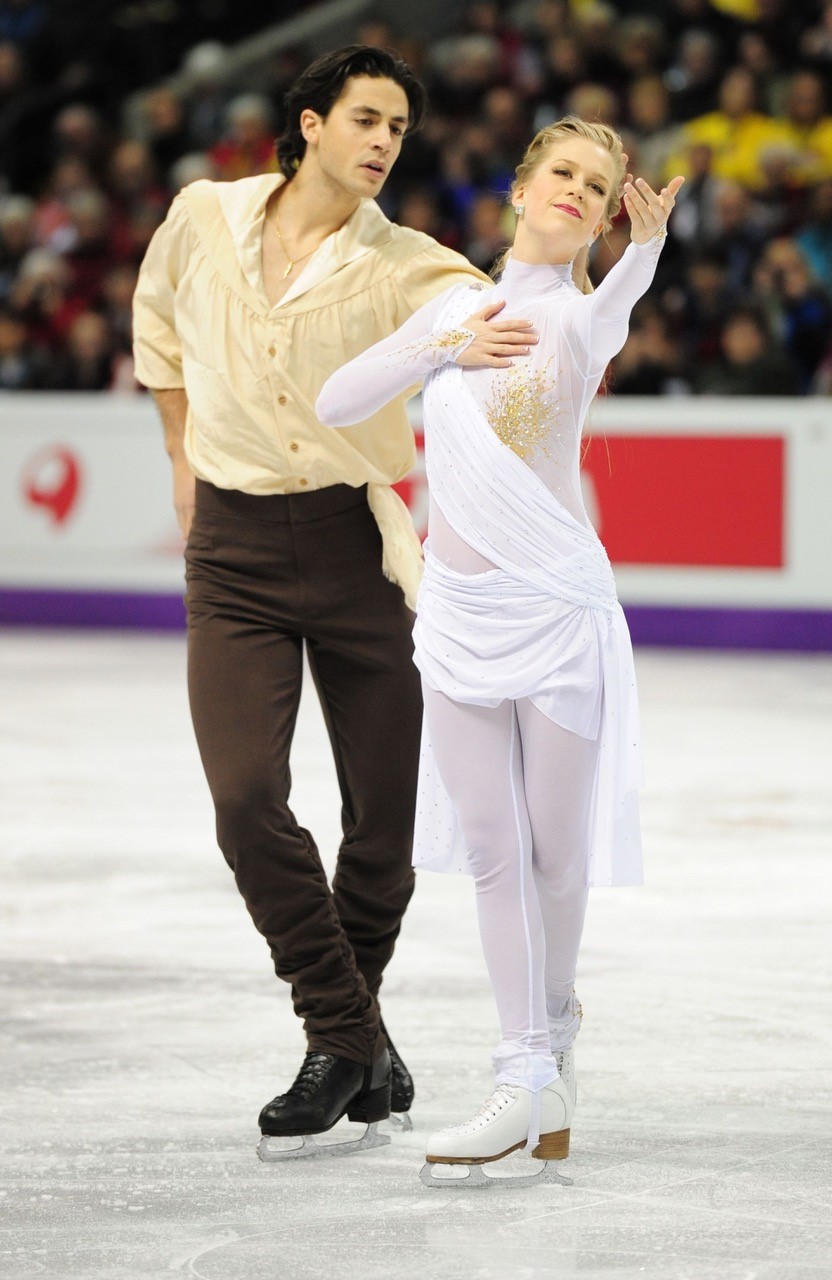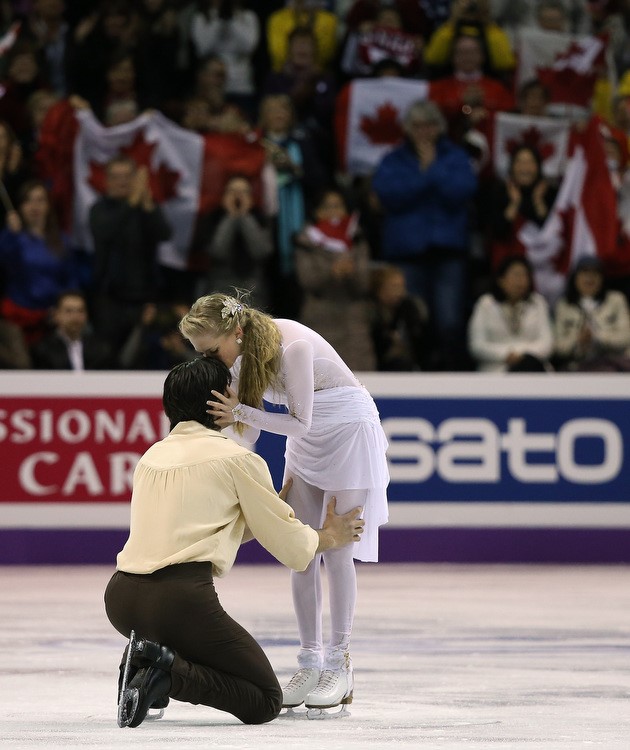Hello Skate Ontario members!
I am so glad to be a part of this beautiful community and share some thoughts. Other skaters in residence have brought you back through their careers and talk about their individual journeys. They have shared the beautiful moments that have shaped and molded pieces of them, but when I sat down to write this blog, my gut told me to write about something else, intuition.
What’s intuition? How do we know if we have it?
 In a sport where we dance on a quarter-inch of steel, awaiting the judgment from others, the beauty of artistry and athleticism genuinely come to a head. The mornings in the cold, working painstakingly on a simple bracket or port de bras, can genuinely test our passion and grit.
In a sport where we dance on a quarter-inch of steel, awaiting the judgment from others, the beauty of artistry and athleticism genuinely come to a head. The mornings in the cold, working painstakingly on a simple bracket or port de bras, can genuinely test our passion and grit.
I have faced many obstacles and moments throughout my career that could have drastically changed my experiences in skating thus far. In all those moments, being an analytical thinker, I had always tried to come to a rational conclusion of what would serve me best and enable me to be the best version. This mindset allowed me to overcome the world’s simple challenges easily, but when the world blurs those lines and the answers aren’t so clear, searching for the yes and no always left me with the same unsure feeling. I would google, read and confront my mentors, looking for the right way. The turmoil would continue and repeat itself, but the responses always ended up leading to the same conclusion, “use your intuition.” What does that mean, and how do we know if we can trust it?
Intuition is a tough thing to understand or even to define truly. It is not as straight-forward as a solution or some other lightbulb moment that pops into your head. It is more abstract than that; it is an alternate sense or feeling. This inclination can’t be explained, but if you lean into it seems reliable and honest. It tends to be that sense of hope when things get complicated. Why is that?
In my research for answers (and sorry ahead of time for getting academic, its part of my process), I found a group of scientists in Italy that decided to dive in and create an experiment to see if people could predict the outcome of an experience based on their “intuition.” The scientist filmed a series of short videos where a person grabbed a half-full bottle of water with the intention of either drinking it or pouring it out into a glass. They then clipped the videos to the exact moment that the person touched the bottle and proceeded to show the clips to people. The participants had to watch the clip and then predict the outcome only by seeing the person grab the bottle. The surprising result was that the participants could predict the proper outcome far better than a typical level of chance. They relied on their intuition for the appropriate solution. The participants could not explain how they knew the result, and when they tried, it was inconsistent.
“Intuition can get at that deep-seated knowledge that we can’t consciously disentangle,” said Michael Pratt, Ph.D., an intuition researcher. Human knowledge is immense, and much of what people comprehend only scratches the surface. The more research conducted, the more scientists are finding that our mysterious intuition can be tied to our brains’ hidden processes. People can see patterns to make judgment calls that are outside the realm of conscious awareness. This outcome is because our brain is continually seeing, interpreting, relaying information in the background. If we spent the day focusing on all that was occurring around us and within us, we would fall victim to analysis paralysis.
The intuitive feelings we get are a mixture of non-conscious perceptions our brain has made and past experiences. Every time we step on the ice and head into an element, our brain is paying attention to sounds around us, the feedback from the ice against your blade, the cold air over your skin, and an abundance of other sensory experiences, all while creating a connection of this information to a good or poor outcome. These inputs are all happening outside of your consciousness but will influence your ability to sense if you will land that jump.
This conclusion means that if you face a decision where there are multiple choices and many right and wrong versions, intuition can be the deciding factor in concluding both quickly and accurately. How awesome is that!
Most sports, figure skating included, encompass the sort of intuition that is borne from experience. Skaters must skate enough to get a sense of what will work and what won’t. Building off past experiences, quick, accurate, and significant feedback is crucial in having a reliable intuition. You learn quickly from falling because the feedback is immediate and unambiguous. The most significant point is that you can only know if you take that chance to fail or succeed.
By taking the risk to step into that uncertainty, you can build your experience databank and create greater chances for your “intuition” to take over. If you stop before you even have the opportunity to learn, then you will never build that plethora of knowledge that creates your superpower that is always running in the background. Leaning into the “what if” moments develop the magical intuition that can guide the test of time.
How many times did you shy away from a challenge or take the safe direction because you didn’t have a sense of how it would turn out? When Kaitlyn and I were preparing for the 2013 World Championships, there were undoubtedly a lot of obstacles in our way; we had a completely revamped program, we were unable to train for more than a couple of weeks, and oh yes, Kaitlyn was getting back on the ice after months off from breaking her ankle. Were we fearful, anxious, and wanting to take the easy way out? There was 100% unease and apprehension of how the outcome may be, but letting our gut lead us to a top 5 finish in front of a home crowd, and one of my favourite skating moments of my career was one of the best decisions I have ever made.
In conclusion, how do we know if we can trust our intuition? We know it can only if we have trusted ourselves to take the risk to learn in the first place.
